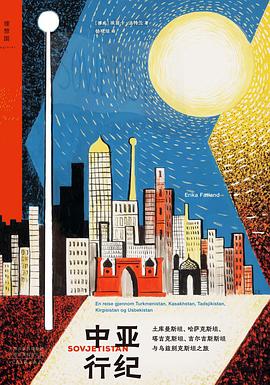WULOLIFE
《中亚行纪》作者: [挪威] 埃丽卡·法特兰 出版社: 河南文艺出版社
《中亚行纪》作者: [挪威] 埃丽卡·法特兰 出版社: 河南文艺出版社
Couldn't load pickup availability
Description
内容简介 · · · · · ·
欧洲十大新声音|韦塞尔奖|爱德华•斯坦福最佳旅行作家入围|挪威书商非虚构奖
亚历山大的军队将吉尔吉斯斯坦的胡桃木带回欧洲,在雅格诺布谷,人们还在使用丝绸之路上的主要用语——生活遵循着另一种时间节奏。然而这五个国家一直被随意归为一个地区:先是作为亚洲到波斯的古代丝绸之路的广阔地带,从里海之滨的土库曼斯坦和哈萨克斯坦,向东穿过乌兹别克斯坦、塔吉克斯坦和吉尔吉斯斯坦,这些国家曾经是苏联最远的边境线。
社会人类学家埃丽卡•法特兰踏上一段即使是最老练的环球旅行者也很少涉足的旅程,自1991年陆续独立后,它们的现状如何?
法特兰穿越土库曼斯坦这个多数世人被禁止进入的国家,前往哈萨克斯坦巨大而荒凉的核爆试验地,在干涸的咸海岸边遇到中国的捕虾人,还遇见自二百年前在吉尔吉斯斯坦平原上生活的德国门诺派教徒。她背包走遍了每个共和国的角落,将这五个中亚国家现在和过去的历史、文化和地理风貌完整介绍给读者,并特别关注每个国家女性生存的现状。《中亚行纪》是一部“穿越中亚的奥德赛”,一位青年人类学家的探索之旅。
*后苏联时代下年轻的中亚国家的现状以及地处俄罗斯文化圈中人民的选择
“当她带我们回到过去时,这些地区的复杂与美丽得到了最好的体现.”
土库曼斯坦、哈萨克斯坦、塔吉克斯坦、吉尔吉斯斯坦与乌兹别克斯坦这五个原苏联加盟共和国各自拥有不同的人文与地貌,远在苏联之前就有着复杂的历史和深厚的文化。尽管这五个国家在许多方面都颇为不同,但它们拥有共同的起源与命运:从1922年到1991年,他们都是苏联— —个在世界史上空前绝后的大型社会实验——的一部分。自1991年陆续独立后,它们的现状如何?
*青年人类学家筹备多年,当代关于中亚五国现状观察ZUI全面的非虚构杰作
作者埃丽卡•法特兰花费数年时间研究,两次进入中亚旅行采访,包括土库曼斯坦这个少有人被允许进入的国家。她在穿越哈萨克斯坦的火车上和陌生人一起喝伏特加吃鱼子酱,参加塔吉克斯坦农村的婚礼,亲眼见到土从沙漠到草原,从农田到雪山,从保留着传统文化的古老城市到新兴都市,一路上与导游、卡车和出租车司机、年轻母亲、考古学家、火车上母亲和电视记者交谈。详细记录了这些在中国历史上始终有一席之地的突厥民族的国家化现状。形成了这部结合游记、历史与社会学调查的非虚构杰作。
*深刻的风土人物观察记录,关注女性处境
在土库曼斯坦与哈萨克斯坦一夫多妻盛行;塔斯坦有大量男性前往俄罗斯工作,他们有不少在当地再婚取了俄罗斯老婆,抛弃家乡的妻子;吉尔吉斯斯坦更有恶名昭彰的"传统,年轻女性被强掳上车并被迫结婚……作者通晓包括俄语,能与当地人充分沟通,并特别关注每个国家女性生存的现状。“二十一岁的萝扎是在一天晚上从化妆品店下班回家的路上被绑架的,此时她已经在比什凯克生活了三年。这一切都不是意外:绑架她的男人知道她下班的时间,以及她通常走哪条路回家。在萝扎独自走到一条空无一人的昏暗街道上时,他动了手。他借了一辆小巴士,并带了十个村里的朋友。这些朋友强行将萝扎拖进小巴士里,把她绑在一个座位上。'我已经绑架了你。你要做我老婆了。'坐在驾驶座上的男人宣布。”
